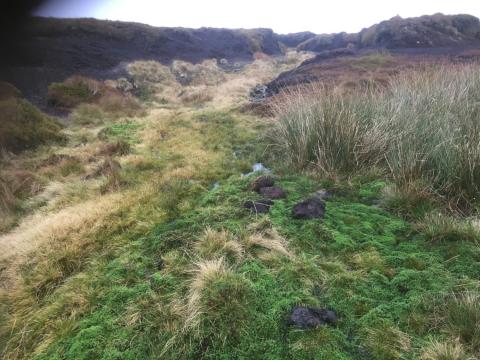Peatlands are the largest store of terrestrial carbon in the UK and carbon uptake and release from these systems is highly sensitive to changes in climate and to human impacts on the peatland ecosystem. Microbial metabolism is a key process underlying peatland carbon dynamics but the resilience of these systems to change in the peatland environment is poorly understood. This project aims to build a novel scientific community to define a series of key research questions linking peatland resilience, function and microbial ecology in UK. Of particular interest are processes underpinning the resilience of carbon stores to drought and flood in restored and eroded landscapes.
We aim to co-produce these research questions by bringing together a multidisciplinary group of peatlands scientists, microbiologists and peatland management practitioners. Key outputs will be a state of the science paper, a prioritised research plan and a policy brief.
This application will aim to define a series of key research questions around the contribution of UK upland peatlands to climate resilience, particularly with respect to resilience of carbon stores to drought and flood in restored and eroded landscapes. We aim to co-produce these research questions through engagement with two key academic communities and with peatlands practitioners and to define them in an authoritative state of the science paper. The project will bring together a multidisciplinary group of peatlands scientists, microbiologists and peatland management practitioners. Other key outputs will be a Prioritised Research Plan and a Stakeholder Guidance document. While there has been work on the impact of upland restoration on peatland carbon dynamics, the process understanding of the links between climate change, flood, drought and peatland carbon storage is limited, and the potential connection with climate resilience is unclear. The processes governing carbon store resilience are predominantly microbial, requiring collaboration between microbiologists and the well-established communities of peatlands scientists and practitioners.
Publications
- Ritson, J. P., Alderson, D. M., Robinson, C. H., et al. 2021. Towards a microbial process-based understanding of the resilience of peatland ecosystem service provisioning – A research agenda. Science of The Total Environment. 759: 143467

